Euro 2020 starts a mere thirteen days after the 2021 Champions League final between Manchester City and Chelsea. Manchester City will have played 61 matches across four competitions in a 38-week period since 12th September 2020, when the compressed 20/21 Premiership season began. For Chelsea, it will be their 59th match, and along with Manchester City, most of their players may also have played around 10 international fixtures. Doing the mathematics shows that this comes out at just under 2 matches a week, which are often highly pressurised, intense affairs and sometimes involving travel across Europe. Added to this there are additional pressures and regulations imposed due to the global pandemic. Some players may be thinking they would rather be resting up on a beach in Portugal than playing in a major football tournament this summer.
Remarkably, most of the English, Scottish and Welsh players seem to be fit to be selected for their respective squads and available to play. Of course, burnout due to a compressed season may affect players from all nations, as English Premiership teams are multi-national and all European leagues have experienced fixture compression. Being free from injury is one thing, but what about other problems they may have that are less visible. How do they feel physically and emotionally? Are they fresh and ready to go or are they experiencing symptoms of burnout?
Burnout is described by Gould and Whitley (2009) as withdrawal from an activity that an individual used to enjoy, due to chronic stress and a reduction in motivation. It is caused by physical, emotional and social factors. Burnout manifests itself physically and psychologically and symptoms include chronic fatigue, a weakened immune system and impaired concentration and attention. All of these symptoms can affect performance, but losing focus could lead to making mistakes with devastating consequences to a team.
The tap drips – drip, drip, drip
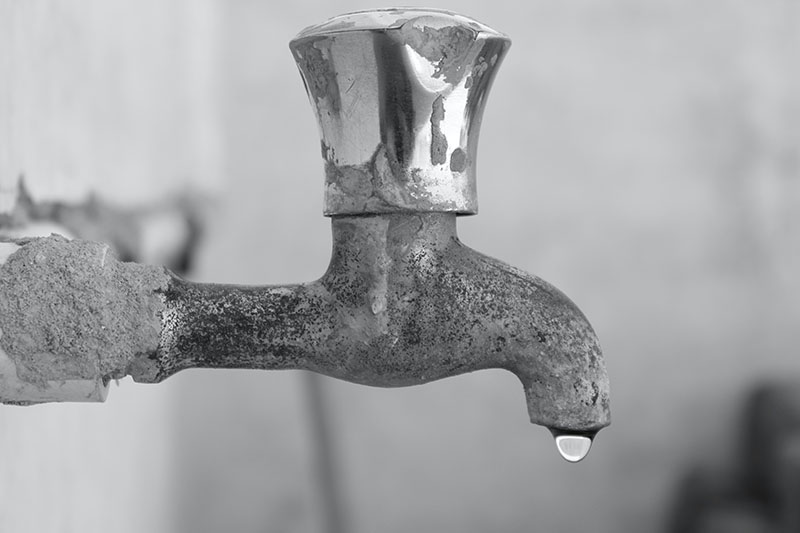
It may be difficult to understand how footballers with huge support teams, who seem to spend time playing and training for an activity they love, experience burnout. They enjoy post-match massages and nutritional routines and have all their needs catered for. But the constant cycle of playing and recovery, being under pressure to win matches and being within small bubbles with teammates, can all play a role in reducing the resources that a player has to cope with the demands placed on them. This drip, drip, drip from a series of sources of stress can make them susceptible to burnout.
Smith and Raedeke (2001) outlined 3 characteristics of burnout. Firstly, emotional and physical exhaustion, in the form of lack of energy and loss of interest in an activity. Secondly, feelings of low personal accomplishment and low self-esteem leading to a decrement in performance. Thirdly, depersonalisation and devaluation, where an individual starts caring less about their sport and what was originally important to them.
Keep on running!
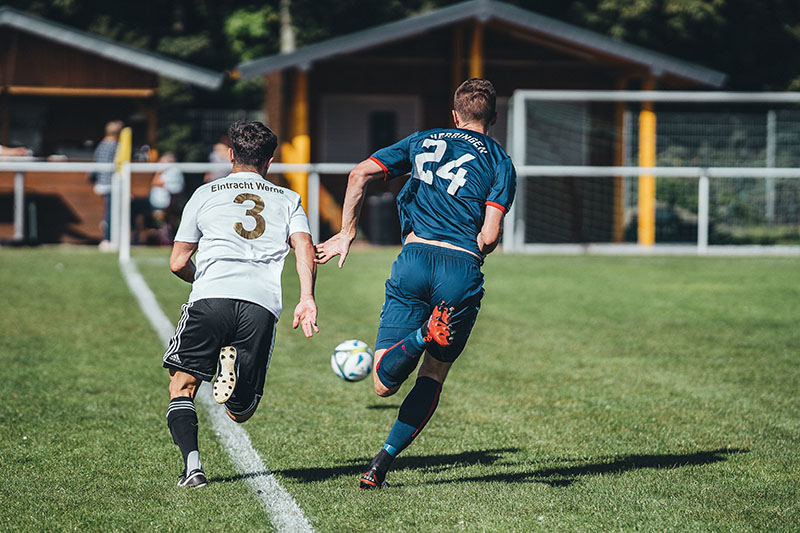
Football is an extremely intense sport that relies on both aerobic and anaerobic energy systems. Energy requirements are dependent on the position played but most positions require repetitive short sprints broken down by periods of walking or jogging. As a result, a player’s energy stores, in the form of glycogen, are severely depleted during each match. According to Murray and Kenney (2016), fatigue during exercise is caused by a range of factors, including energy depletion, an increase in the acidity of the blood and slowing down of the speed of nervous impulses. In addition, exercise causes microtears to muscles and there may be minor injuries as a result of physical challenges to recover from as well. Recovery from a football match can take between 48–72 hours. The constant cycle of performance and recovery can start to increase this time period leading to insufficient recovery.
I’m so tired, my mind is on the blink.
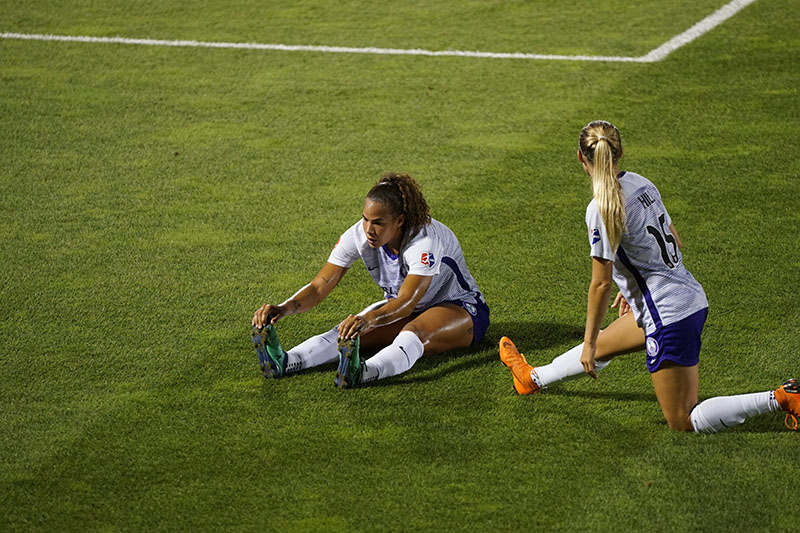
Imagine you are an international footballer who has just played a highly pressurised match and you have gone back to your home or hotel room. It is likely that you will not be able to switch off and relax as your brain is reliving the match – the things you did well and the chances you missed. This goes on until the early hours of the morning when you finally get to sleep. You wake up the next morning feeling exhausted and realise you have another match in three days’ time. Over those three days you think about little else except the match and you become more anxious the closer you get to the match and this affects your mood and your sleep. On top of this you may have to deal with social media and the needs of your friends and family. This cycle continues over an 11-month period until you finally get a break. Without emotional support and periods away from competitive football, burnout becomes almost inevitable.
The psychological symptoms of burnout were identified by Hackney, Pearlman and Nowacki (1990) as increased anxiety, mood changes, loss of concentration and sleep disturbances. Emotional isolation and substance abuse are also characteristics of burnout and all these symptoms are likely to have a negative on wellbeing and performance.
Will burnout be a significant factor?
Since March 2020, we have all lived through a global crisis that has created new sources of stress and challenges to be faced. Sport went through a period where every event was cancelled which resulted in a longer competition period characterised by fixture congestion as we tried to catch up. For example, between the 6th and 13th May, Manchester United had to play four matches including one away in Rome.
It will be interesting to see if the compressed domestic seasons across Europe impact on all teams at Euro 2020. The result may be a lower quality of play, a less energetic style of play, and an increased incidence of injury. This may be mitigated by an allowed increase in the size of squads from 23 to 26 players and being able to make squad changes right up to the start of the tournament.


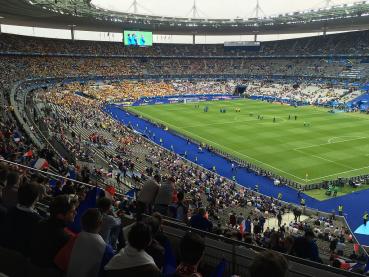

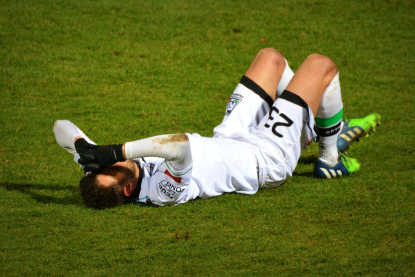

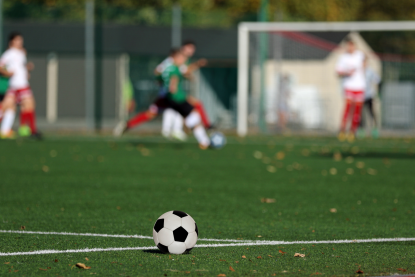
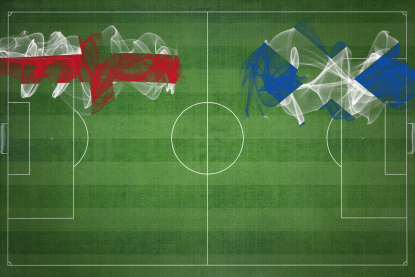
Rate and Review
Rate this article
Review this article
Log into OpenLearn to leave reviews and join in the conversation.
Article reviews